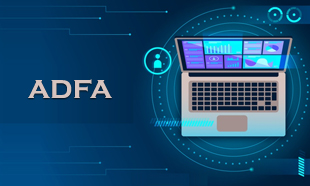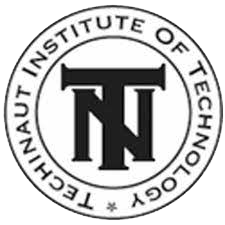0
ADFA course is to equip students with the knowledge and skills required to work effectively in financial management and accounting roles.
SHRI SAI COMPUTER COACHING INSTITUTE, in Yenbodi, Amdi, Chandrapura, Maharashtra, offers a one-year Advanced Diploma in Financial Application (ADFA) course. This program, operated under the Techinaut Institute of Technology franchise, is designed to provide students with a comprehensive understanding of financial accounting principles and practices and the practical skills necessary to work in financial management and accounting roles.
THE OBJECTIVE OF THE COURSE:
The primary objective of the ADFA course is to equip students with the knowledge and skills required to work effectively in financial management and accounting roles. By the end of the program, students will have gained a deep understanding of financial accounting principles and practical skills in using financial software such as Tally for financial management and accounting.
COURSE CURRICULUM:
1. Basics of Computer:
The Course begins with an introduction to computer hardware, software, and operating systems basics. Students learn about the components of a computer system, including the CPU, memory, storage devices, and input/output devices. They also gain an understanding of different types of software and operating systems.
2. Computer Appreciation:This module provides students with a historical overview of computers and their evolution. Students learn about the impact of computers on society, various applications of computers in different fields, and the role of technology in shaping the modern world.
3. Computer Organization:In this module, students delve deeper into computers' internal structure and organization. They learn about computer architecture, the functioning of the CPU, memory hierarchy, and input/output operations. The module also covers binary representation, logic gates, and data representation.
4. Operating System:Students are introduced to operating systems like Windows, Linux, and macOS. They learn about the role of an operating system in managing hardware resources, running applications, and providing a user interface. The module covers file management, process management, memory management, and system administration.
5. MS Word Processing:This module focuses on word processing skills using Microsoft Word. Students learn to create, format, edit, and manipulate text documents. They also learn about advanced features such as mail merge, document templates, styles, and macros.
6. MS Spreadsheet Package:Students gain proficiency in using Microsoft Excel for data analysis and manipulation. They learn to create and format spreadsheets, use formulas and functions for calculations, create charts and graphs, and analyze data using pivot tables.
7. MS Presentation Package:In this module, students learn how to create professional presentations using Microsoft PowerPoint. They learn about slide design, layout, animation, and multimedia integration. Students also learn how to deliver effective presentations and engage their audience.
8. Introduction to Internet:Students are introduced to the InternetInternet and its role in communication, information sharing, and collaboration. They learn about the history of the Internet, basic Internet protocols, and services such as e-mail, web browsing, and social media.
9. E-mail:Students learn about electronic mail (e-mail) and its importance as a communication tool in the digital age. They learn how to create and manage e-mail accounts, send and receive e-mails, organize e-mail messages, and use e-mail etiquette.
10. Introduction to Tally:This module introduces students to Tally, a popular financial accounting software used by businesses for managing their accounts. Students learn about the features and functions of Tally, as well as how to set up and configure Tally for use in a business environment.
11. Administration in Tally:Students learn about the administrative functions in Tally, including creating and managing user accounts, setting permissions and access rights, and configuring security settings.
12. Managing Groups, Ledgers, and Vouchers:Students learn how to create and manage groups and ledgers in Tally and how to enter and manage vouchers for different types of transactions.
13. Cost Centres and Cost Categories:This module covers the concept of cost centres and cost categories in Tally and how to set up and manage them for tracking and analyzing costs.
14. Introduction to Budgets:Students learn about budgeting in Tally, including creating and managing budgets for different departments or projects.
15. Introduction to Voucher:This module covers the different types of vouchers in Tally, such as payment vouchers, receipt vouchers, and journal vouchers, and how to create and manage them.
16. Currencies (Multiple Currencies and Foreign Exchange):Students learn how to manage multiple currencies and foreign exchange transactions in Tally, including how to set up exchange rates and record transactions in different currencies.
17. Inventory Information:This module covers inventory management in Tally, including how to create and manage stock items, track inventory levels, and generate reports related to inventory.
18. Voucher Entry:Students learn to enter vouchers in Tally for transactions, including sales, purchases, payments, and receipts.
19. Displaying Information from Tally:This module covers displaying and extracting information from Tally, including generating reports, viewing account balances, and analyzing financial data.
20. Introduction to Taxation:Students learn about taxation in Tally, including how to set up tax codes, calculate and record taxes, and generate tax reports.
21. Introduction to Payroll:This module covers payroll management in Tally, including how to set up and manage employee records, calculate salaries, and generate payroll reports.
CONCLUSION:
The Advanced Diploma in Financial Application (ADFA) course at Shri Sai Computer Coaching Institute offers a comprehensive curriculum covering a wide range of financial management and accounting topics. Students are equipped with the skills and expertise required to succeed in financial management and accounting roles through a blend of theoretical knowledge and practical training. Whether pursuing a career in finance, accounting, or business administration, graduates of the ADFA course are well-prepared to excel in their chosen field.
Lectures = 260 HRS
Practical/Tutorials = 260 HRS
Total = 520 HRS


